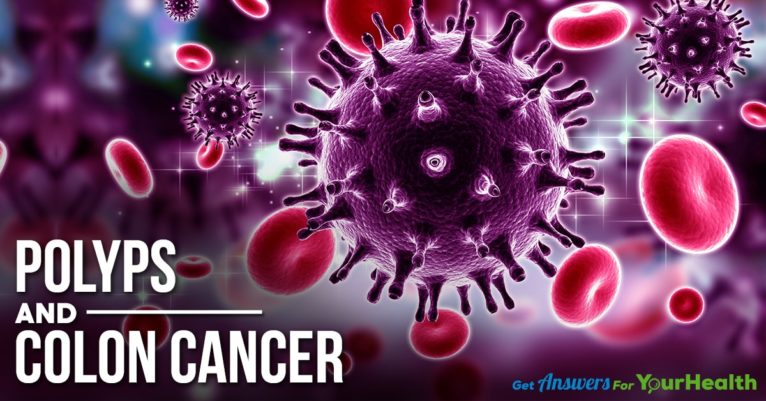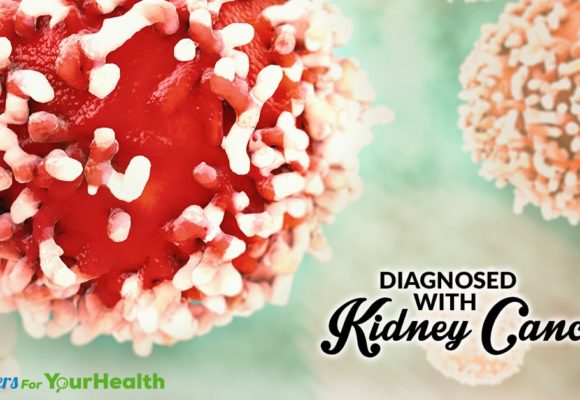1) Grab a FREE copy (Value $14.95) of one of my books Thyroid Symptom Overload
Just pay shipping $7.95 for any US orders. Or, if you want to pay full price plus shipping, order from Amazon :)
2) Take our Thyroid Quiz today and find out what "Thyroid Type" you have
This quiz will help you quickly discover where your symptoms are stemming from.
3) Join Our Thyroid Advocate Membership Site - Natural Thyroid Academy
FREE for a limited time. No credit card required.
4) Work with me and my team privately
Schedule your FREE 15 minute phone consultation and we can find out the best way to help you specifically.
Are you worried about having polyps in your intestine? Or is this word is a new term for you? Polyps are outgrowths in the inside of your intestine. They can develop into cancer, but polyps and cancerous tumors are two different, although interrelated problems.
Polyps are very common. More than one third of the population suffers from them at one time in their lives. If diagnosed early, polyps generally have a successful recovery rate. Let’s get to know more about polyps.
What Are Polyps And How Are They Caused?
Polyps are abnormal growth of tissues on the inner lining of intestine that protrude inside the intestinal cavity. Normally, every cell in our body is consistently regulated to divide (multiply), mature and ultimately die when aged. So is the case with the cells of intestinal lining. This is done on the commands of script or information that is coded on genes (genetic material of cells). But the problem arises when this genetic material gets disturbed, which is caused by mutation.
Consequently, the faulty genes misguide the cells to divide rapidly. The outcome is the accumulation of a large number of immature and poorly differentiated abnormal cells, which eventually leads to the formation of polyps. The mutations, that is the main culprit in the development of polyps, can be acquired as well as genetic.
The Link Between Polyps And Cancer:
There is a strong association between polyps and cancer, as polyps can become cancerous eventually. But not all types of polyps are likely to develop into cancerous tumors. There are two sets of polyps – neoplastic polyps and non-neoplastic polyps.
Non neoplastic polyps further include inflammatory polyps, hyperplastic polyps and hamartomatous polyps. These kinds of polyps are generally non-cancerous and, in most instances, they don’t pose risks for cancer. Mostly, they are associated with the conditions of intestine like ulcerative colitis (inflammatory disease of intestine).
The other type of polyps that are known as neoplastic polyps are a matter of concern. There is a great chance of them being converted to cancerous growths. The most common type of neoplastic polyps are adenomatous polyps. The other being serrated types.
Adenomatous Polyps Can Turn Into Cancerous Tumors:
Adenomatous polyps are a big concern. They are the most common cause of colon cancer. The chances for the development of colon cancer from adenomatous depends on three factors.
The first factor is the size of the polyp. With the larger size of polyp, there are greater chances of cancer occurrence. Generally the size of polyp greater than 1 cm increases the malignant potential of adenomatous polyps.
The second factor for increased chances of colon cancer is the number of polyps. Patients with multiple polyps, although not cancerous, can develop additional polyps in the future that may become malignant.
The last factor is how the polyps arrange themselves. Villous adenomas are those polyps that arrange themselves into finger like structures. They are more likely to become cancerous than the tubular adenomas. Tubular adenomas organizes themselves in tubular form.
- Sporadic Adenomatous Polyps Formation:
The adenomatous polyps are considered sporadic (acquired). Nevertheless, the risk of developing polyps and their potential metastasis greatly increases if the patient has first degree relatives having colon polyps. Therefore, even in sporadic adenomatous polyposis, genetic factors also play a role.
- Familial Adenomatous Polyposis:
The familial (hereditary) form of adenomatous polyposis occurs due to the inherited mutated gene. So basically, in familial adenomatous polyposis, the causative factor (mutation) is already programmed in the genes before birth. It is important to know what happens in this disease and what causes it, as more than 80% of familial adenomatous polyposis develops into malignant tumor.
Familial adenomatous polyposis is caused by mutation of a gene APC. Normally, APC gene helps in tumor suppression by producing proteins that keep a check on the normal cell division and growth.
With the mutation of this gene, the check on regulated cell division is lost and the cells start multiplying fast. This leads to the formation of adenomatous polyps. By age 40, almost in every individual, these polyps can turn cancerous. Even though, these polyps account for around 2% of all the colon cancer occurrences, it is necessary for the regular screening of this syndrome to diagnose and treat cancer timely.
Who Is At An Increased Risk For Developing Colon Polyps:
Although the exact cause of mutation is unknown, there are certain people who are at increased risk for developing colon polyps. Following are the common risk factors:
- Age:
Older age is associated with increased risk of having colon polyps. People older than age 50 should be regularly screened for colon polyps and colon cancer.
- Inflammatory Intestinal Disease:
The inflammatory intestinal conditions increase the probability of the formation of polyps. However, these polyps are non-neoplastic and there is a less chance of them being converted to colon cancer. The common inflammatory intestinal conditions include ulcerative colitis and Crohn’s disease.
- Family History:
Positive family history may suspect the genetic predisposition in causing colon polyps. Other than familial adenomatous polyposis, there are also other hereditary conditions that cause polyps formation. Lynch syndrome, Gardner’s syndrome, MYH associated polyposis, serrated polyposis syndrome are some hereditary conditions that cause colon polyp formation. In lynch syndrome, relatively less polyps form but these polyps can quickly turn malignant. However, in some people, the connection is because of shared lifestyle choices, rather than the heredity.
- Personal History:
If you have a positive history of having polyps in the past, you are at an increased risk of developing polyps again in the future. Having a positive history of ovarian or uterine cancer before the age of 50, also increases the risk of having colon polyps.
- Obesity:
Obesity and lack of exercise is also associated with colon polyps formation, as well as colon cancer development. Uncontrolled type 2 diabetes, which can be the complication of obesity, is also linked with increased risk of colon polyps occurrence.
What Are The Signs And Symptoms Of Polyps?
You may have colon polyps and do not know. In 95% of cases, polyps do not present signs and symptoms. This is the reason why, most of the time, diagnosis is made when polyps have already given rise to colon cancer and the disease has advanced.
As a result, it is difficult to treat them and the recovery rate declines. However, in regular screenings of the intestine, polyps can be identified. Screening is a medical test that is done before the symptoms are present. In 5% of cases where colon polyps present symptoms, there can be the following symptoms.
- Change In Bowel Habits:
Bowel irregularities can occur due to the presence of polyps. The irregularities can be one of the two types. Either the bowel moves too slowly due to the obstruction by large size of polyp causing constipation or rarely due to secretion of villous polyp, diarrhea occurs. Constipation or diarrhea that lasts long can be a concern. Though other minor problems may also cause these two conditions.
- Abdominal Pain:
Abdominal discomfort, pain or bloating is another symptom of colon polyps. Bowel obstruction causing cramping of the abdominal muscles that results in abdominal pain. Vomiting and nausea may accompany the abdominal discomfort.
- Rectal Bleeding:
Presence of blood in or around the stool may suspect the colon polyps. As polyps have a tendency to bleed less, slowly and intermittently bleeding can be a symptom of colon polyps. However, bleeding is also caused by other conditions like hemorrhoids or minor tear around anus.
- Anemia:
Iron deficiency anemia can be caused in colon polyps. This is due to chronic bleeding, accompanied in colon polyps, that occurs time to time and often without visible blood in the stool.
Although, bleeding is normally slow and intermittent. But if persists for prolonged time, it robs the iron (constituent of blood) needed to make hemoglobin. Hemoglobin is a protein in blood that carries oxygen. Due to its deficiency, anemia develops. In turn, this causes fatigue and breathlessness.
How Can Colon Polyps Be Treated?
Once polyps develop in your intestine, they can be removed. Your medical doctor is most likely to remove them and examine for their potential malignancy. The polyps can be easily removed through colonoscopy that doesn’t require any invasive surgery. However, if the polyps are large enough, laparoscope surgery can be done. It is a minimal invasive procedure.
Surgery is done by making an incision in the abdomen. Through this incision, a tube is inserted in the colon with a high quality camera and bright light in front of the tube. With the visual of the intestine through this procedure, doctor can remove the polyps by special tools. Consult your primary physician or gastroenterologist for the better understanding and treatment.
What Is The Outlook For Colon Polyps?
Polyps are generally considered harmless and need not to be treated unless they are large enough to produce symptoms or there is an increased risk of the development of colon cancer in the future. Even once colon polyps are removed, there is a high risk of developing more polyps later in life. Therefore, screening is necessary for the elimination of colon cancer risk. Your doctor may recommend you screening once every three or five years.
Can Colon Polyps Be Prevented?
You cannot completely prevent polyp formation. However, you can surely decrease the chances of having colon polyps. Eating healthy diet rich in fruits and vegetables considerably reduces the risk of developing colon polyps. You can further reduce the risk by avoiding saturated fats, processed food, and red meat. Last, maintaining healthy weight and regular exercise is also beneficial for preventing colon polyps.
Conclusion:
Colon polyps are abnormal growth of tissues in the colon that are mostly benign. However, some types of polyps have potential to develop into cancerous outgrowths. Adenomatous polyps are considerably associated with the development of colon cancer. They should be diagnosed and treated timely to prevent colon cancer or other complications due to the advancement of disease. Screening is helpful in diagnosing colon polyps as most of them do not present signs and symptoms.
References:
http://www.healthline.com/health/colorectal-polyps#Riskfactors4
http://www.medicinenet.com/colon_polyps/article.htm
http://www.webmd.com/colorectal-cancer/tc/colon-polyps-topic-overview#1
http://www.webmd.com/colorectal-cancer/guide/colorectal-polyps-cancer#1
http://www.nhs.uk/Conditions/polyps-bowel/Pages/Introduction.aspx
http://www.cblpath.com/uploads/Hyperplastic_Colon_Polyps.pdf
https://www.ncbi.nlm.nih.gov/pubmed/8362146
http://www.healthline.com/health/polyps#diagnosis5
http://www.mayoclinic.org/diseases-conditions/colon-polyps/home/ovc-20346918








